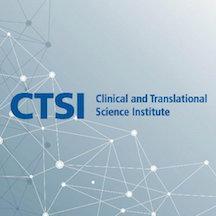
“The Clocks That Time Us: Navigating Temporal Differences in Teams” will be presented at the next Penn State Clinical and Translational Science Institute Bench to Bedside and Beyond Seminar Series, from noon to 1 p.m. on Thursday, March 28.
In addition to being held in 116 Henderson Building at the University Park campus, the session will be streamed to H4504 at Penn State College of Medicine and streamed online. Online registration is requested; the online stream link will be provided upon registration.
Susan Mohammed, professor of psychology and team science lead of the institute’s Community Engagement and Team Science Core, will discuss how teams are affected by their members’ orientation towards time and provide practical tips to minimize friction and maximize performance resulting from time-based differences.
People not only differ in demographic characteristics and personality traits but also in their time orientation. Some individuals are chronically hurried, while others have a relaxed pace. Some start projects early and others wait until the last minute to begin. Some prefer to work on a single task at a time and others prefer several tasks simultaneously. What happens when individuals with different orientations toward time work together interdependently in a team? Although commonly overlooked in research and practice, studies are beginning to demonstrate that time differences have important implications for team conflict, coordination and performance.
The Bench to Bedside and Beyond Seminar Series is held to encourage an engaged translational science workforce while promoting a culture of continuous improvement in research conduct and practice at Penn State.
For details about Penn State Clinical and Translational Science Institute and its mission to accelerate discoveries to benefit human health, visit ctsi.psu.edu. To request a team science consultation or to learn how a research project at Penn State can benefit from the institute’s resources, complete the institute’s service request form.